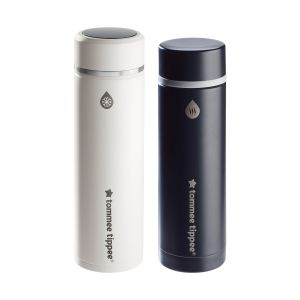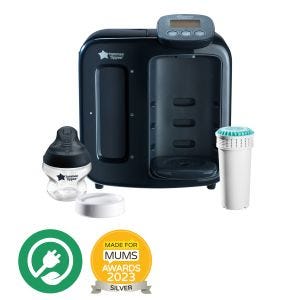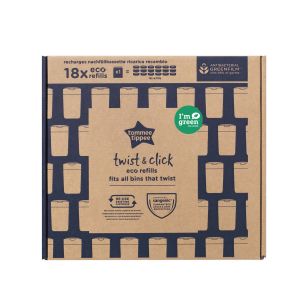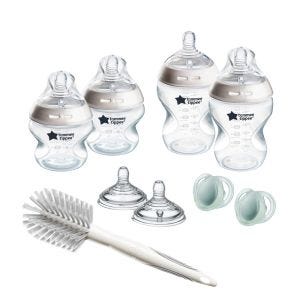
Tommee Tipps
Having a baby is a huge milestone, and nine months of pregnancy mean that your body changes in all sorts of ways as you grow and bring a new little person into the world.
How Your Body Changes During Pregnancy & Postpartum
Having a baby is a huge milestone, and nine months of pregnancy mean that your body changes in all sorts of ways as you grow and bring a new little person into the world.
Read on for the low-down on all the physical changes that pregnancy’s different stages bring.
The 1st Trimester
During the first trimester – weeks one to 12 – although your baby is still tiny your body is undergoing massive changes. You’re likely to feel tired and may have tender breasts because of rising levels of the hormones oestrogen and progesterone. It’s in these early weeks that most mums-to-be experience their first pregnancy cravings, and begin to suffer from morning sickness – nausea that can spring up at any time of day, regardless of what the name suggests!
Coupled with the nausea you may feel a little light-headed at times as your body works hard to produce the increased blood volume needed to support your growing baby. This can leave you feeling a little weak so make sure you are eating well and keeping hydrated.
It’s now that your baby grows faster than at any other time during pregnancy, so it’s really important that you rest up, get fresh air when you can, eat a healthy diet to support all this extra work your body is doing.
The 2nd Trimester
Often thought to be the most enjoyable weeks of pregnancy, as you enter the second trimester – weeks 13 to 28 – you’ll slowly begin to feel and look more pregnant. You should begin to regain some of the energy you were lacking in the first trimester, hooray! You’ll feel your baby kick for the first time (although when exactly varies greatly from woman to woman) and friends and family may comment on your ‘glowing’ complexion and luscious locks.
During this stage, ‘baby brain’ can set in and you may find yourself being a little forgetful, stretch marks may begin to appear, and your nipples and areola will start to get darker. You may also experience heart burn – which can be eased by eating smaller meals, staying upright after eating, and avoiding anything acidic, greasy, or spicy – tough we know, but it’s not forever!
The 3rd Trimester
The third trimester – weeks 29 to 40 – is when you’re likely to feel the most physically exhausted and maybe a little uncomfortable as your bump continues to grow. As this phase continues, aches and pains are common. But hang in there, you’re on the home stretch and your little one is nearly ready to make their debut!
You may be suffering from what is commonly known as pelvic girdle pain which can be really miserable. Speak to your GP though and ask to be referred to a Specialist Women’s Physiotherapist who will be able to give you some really helpful tips to relieve the discomfort.
Your breasts will start to produce nutrient-rich milk known as colostrum, ready to welcome your newborn. You can express this colostrum and freeze it ready for when your baby arrives – this is known as colostrum harvesting and can be done from 37 weeks onwards. Your body may also get you ready for birth with ‘practice’ contractions called Braxton Hicks as your baby begins to move into your lower pelvis. Symptoms like insomnia, swelling, frequent urination, and pelvic discomfort can be common and may stick around until your little one arrives.
From Birth & Beyond
Whether you have a vaginal birth, or it’s via C-section, it’s pretty certain that your body will change post-pregnancy, just as it did during.
You may be left with stretch marks and have swelling or stitches to recover from which are all be part of the healing process. After-birth bleeding – known as lochia – is common and can last for up to a month. However, if you experience any clots or very heavy bleeding touch base with your midwife.
It is not unusual to feel a little bruised, exhausted, and even tearful at times – after all you’ve just entered a huge new chapter in your life! You’ll be surprised how quickly you will recover though, so just take it easy and enjoy your baby giving your body time to heal.

Always remember to listen to your body as you’re recovering from birth. Pace yourself when it comes to exercise, make sure you get plenty of rest, and always talk about any post-baby body changes that are worrying you with your doctor or midwife.
Finally, remember that you’ve just done something amazing, you’ve brought a new life into the world!








